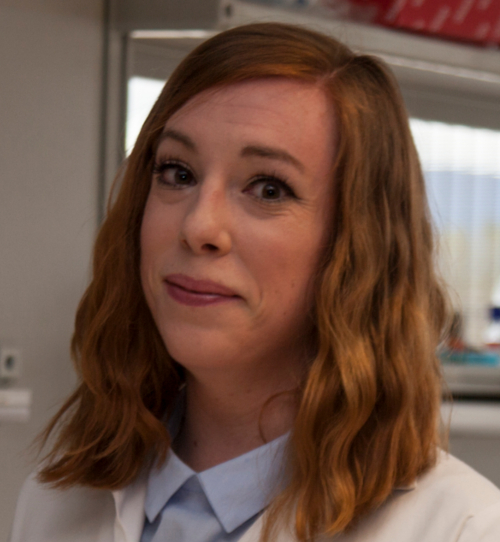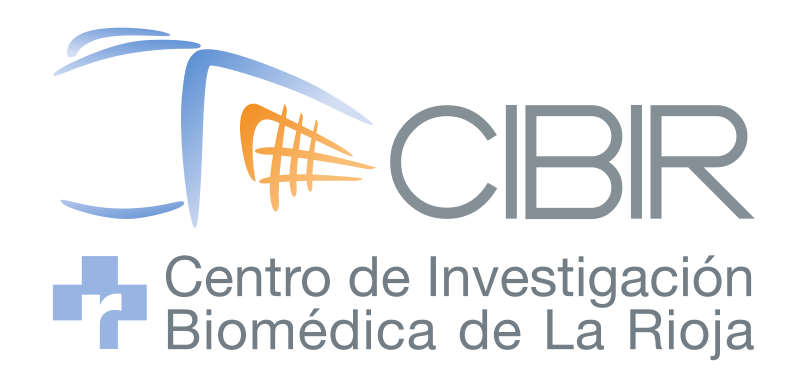
Team
- Principal Researcher: Lydia Alvarez-Erviti
- Postdoctoral Researcher: María Izco Gaviria
- Postdoctoral Researcher: Raquel Forcén
- Laboratory Technician: Estefanía Carlos Montenegro
Research
Our research focuses on elucidating the cell and molecular mechanisms underlying Parkinson’s disease pathology and progression. Our research projects focus on:
- Understand the pathological mechanisms involved in Parkinson’s disease
- Identify new therapeutic targets for Parkinson’s disease treatment.
Moreover, our group is developing a gene therapy using exosomes to prevent the brain cell death and the progression of the pathology that is seen in patients with Parkinson's disease. This delivery system has several major advantages: administration is simple and minimally invasive, it targets all regions of the brain and it can be re-administered without any apparent immune response. Furthermore, the effect is brain-specific which has the major advantage that systemic effects on other tissues are avoided and allows long-term knockdown. This technology will also open a new avenue for treatment of a wide variety of other neurological diseases including Alzheimer’s disease, Huntington’s disease and prion disease, for which efficacious treatments are lacking.
Objectives:
- Investigate the role of miRNAs upon Parkinson’s disease pathology and progression.
- Explore the potential role of environmental toxins on PD aetiology and progression.
- Evaluate the potential of RVG-exosome delivery of shRNA-encoding minicircles for long-term knockdown of expression of alpha-synuclein, as a potential disease-modifying therapy of Parkinson’s disease.
Other research lines:
- Identify blood-based biomarkers to diagnose Parkinson’s disease, assess disease severity, and prognosticate course.
- Investigate the mechanism involved in Tau transmission.
Principal Researcher

Lydia Alvarez-Erviti
Email: This email address is being protected from spambots. You need JavaScript enabled to view it.
Phone: +34 941 278 875
Biosketch
Lydia Alvarez-Erviti studied Pharmacy in the University of Navarra (1993-1998). Her PhD in University of Navarra (1998-2002) was in the Cell Biology PhD program in the field of immunotoxicology and mycotoxins (PhD Studentship from the Department of Industry of the Government of Navarra). During this period she worked at the University of Oxford in a 4 month research project (International visit Studentship from Fundación Empresa-Universidad). Following an MSc program (Masters Degree in Clinical Trials Monitoring. ESAME-University of Barcelona, 2003) she returned to laboratory research as a postdoctoral research fellow in the Laboratory of Movement Disorders in the CIMA-University of Navarra). In 2006 she was awarded a Fellowship (Post-doctoral Fellowship Fondo de Investigación Sanitaria), as part of this award she conducted a research project in the Department of Clinical Neuroscience (University College London).
In 2008 she was appointed as a senior post-doctoral research in Dr Matthew Wood’s gene therapy laboratory (University of Oxford). She returned to the Department of Clinical Neuroscience (UCL) as a senior post-doctoral fellow (October 2009).
In 2011 she was awarded with a Senior Research Fellowship (Parkinson’s UK) to develop the use of exosomes to deliver therapy for PD patients.
In October of 2014 she moved to Center for Biomedical Research of La Rioja (CIBIR) to establish a new research programme on Parkinson’s disease. In January of 2016 she was awarded with a Miguel Servet Senior Fellowship (Spanish Health Ministry) to investigate pathological mechanisms in Parkinson’s disease.
She has been awarded with prestigious grants including project grants, a Junior Fellowship and a Senior Fellowship from the Spanish Health Ministry and a Senior Fellowship from Parkinson’s UK. She has participated in 8 projects being the principal investigator in 2 of them.
Publications
Work Team
María Izco Gaviria

María Izco Gaviria
Email: This email address is being protected from spambots. You need JavaScript enabled to view it.
Phone: +34 941 278 791 (Ext.:89791)
Biosketch
María Izco graduated in Biochemistry from the University of Zaragoza (2003) and received her Ph.D. in Pharmacology and Human Therapeutics (PhD Studentship from the Universidad Complutense, PhD Studentship from the Government of Madrid) from the Complutense University of Madrid in 2008, obtaining also the Extraordinary Prize of Thesis. During her thesis, she worked on the study of the mechanisms involved in hyperthermia and neurodegeneration induced by MDMA (ecstasy) in rodents as well as on the study of neurochemical and behavioral interactions between MDMA and other drugs commonly used, such as ethanol, in rodents.
In 2008 she was appointed as postdoctoral researcher in the pharmaceutical company Araclon Biotech-Grifols as (2008-2015). During this period, she participated in a project focused on immunotherapy and its mechanisms of action in animal models of Alzheimer’s disease.
In 2015 she joined the CIBIR as a postdoctoral researcher in the Molecular Neurobiology group of Dr. Alvarez-Erviti. Our research projects focus on the pathological mechanisms involved in Parkinson’s disease and the role of alpha-synuclein in the pathology. Moreover, we are developing a gene therapy treatment the Parkinson's disease.
Publications
Raquel Forcén

Raquel Forcén
Biosketch
Raquel Forcén graduated in Biology from the Universidad Autónoma de Madrid (UAM) (2013) and received her Ph.D. in Biomedical and Biotechnology Science from the University of Zaragoza and University of La Rioja in 2017. During her thesis, she worked on the study of intestinal physiopathological mechanisms in gastrointestinal disorders such as Intestinal Bowel Syndrome (IBS) and Inflammatory Bowel Disease (IBD), including the interaction between intestinal microbiota, the serotoninergic system and components of the immune system like toll like receptors (TLR) in the regulation of intestinal motility and permeability functions.
In 2017 she was appointed as Research Associate in the pharmaceutical company n-Life Therapeutics (2017-2018). During this period, she collaborated in the development of oligonucleotides as therapeutic agents for CNS disorders include Huntington’s disease, Alzheimer’s or Parkinson’s disease.
In 2018 she joined the CIBIR as a postdoctoral researcher in the Molecular Neurobiology group. Our research projects focus on the pathological mechanisms involved in Parkinson’s disease and the role of alpha-synuclein in the pathology. Moreover, we are developing a gene therapy treatment the Parkinson's disease.
Estefanía Carlos Montenegro

Estefanía Carlos Montenegro
Email: This email address is being protected from spambots. You need JavaScript enabled to view it.
Biosketch
She studied clinical diagnostic laboratory technician in Toledo, from 2010 to 2012, her laboratory placement was at the Paraplegic Hospital, in the vascular Physiopathology research group for three months.
In 2012 she moved to Logroño, where she studied environmental health technician, she completed her laboratory placement in the Molecular Microbiology research group in the Center for Biomedical Research of La Rioja (CIBIR), in, in 2014.
She currently works at CIBIR in the molecular neurobiology research group.
Funding & collaborators








